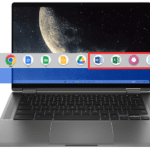New AI tool helps companies navigate global hiring requirements

Regulations surrounding the hiring of staff are complex, constantly changing and vary considerably between countries. Throw in increased levels of remote working and it becomes even more of a challenge.
To help employers work their way through these regulations, employment platform Oyster is launching an AI-powered chatbot specifically designed to answer questions about global hiring and remote work regulations.
Cyber insurers play harder to get as claims increase

A new survey of over 300 organizations in the US finds that the time and effort to obtain cyber insurance is increasing significantly.
The survey, conducted by Censuswide on behalf of privileged access platform Delinea, looked to uncover new trends and evolving patterns since a similar report last year and finds that the numer of companies using their cyber insurance more than once increased to 47 percent.
How document automation can take the pressure off IT teams [Q&A]

The shift to remote work, the Great Resignation and high staff turnover have meant that many IT teams have seen a big increase in their workloads over the last few years.
Automation is often seen as a way of addressing the problem, but can it really help to reduce workloads and get IT departments back on track? We spoke to Shawn Herring, CMO of document workflow specialist airSlate, to find out.
New mobile operating system focuses on security and privacy

Today's online world relies on monetizing information. Sensitive data is sourced through search engines, web browsers, and app developers and can be used to target marketing and more.
If you're concerned about how your data is used you might be interested in the launch by Myntex of Renati. This is a security-focused, Android-based mobile operating system for Pixel devices designed to disrupt data collection.
A holistic approach to closing the container security gap [Q&A]

Among cloud developers, Kubernetes is now a widely used platform. It's not immune to security incidents, however, and these can lead to loss of revenue or customers.
So, what's the best way to secure Kubernetes systems? Alex Jones, engineering director Kubernetes at Canonical, suggests a need to look beyond containers with a holistic approach to security that spans all layers of the system. We talked to him to discover more.
Generative AI raises SaaS security worries

IT leaders are grappling with anxiety over the risks of generative AI despite continued confidence in their software-as-a-service (SaaS) security posture.
New data from Snow Software, which surveyed 1,000 IT leaders, finds 96 percent of respondents say they are still 'confident or very confident' in their organization's SaaS security measures, and yet, 'managing the security of SaaS applications' is the top challenge for IT leaders.
Financial services companies plan to boost their AI investments

A new study from Lucidworks shows that businesses across the board are planning to increase their investment in AI over the next year, with financial services companies among those leading the charge.
The survey of over 6,000 employees involved in AI technology decision-making finds 94 percent of financial services firms planning to boost generative AI investments within the year. However, the survey found differences depending on location. 100 percent of Chinese financial services employees and 97 percent of UK respondents surveyed say they plan to increase investment, compared to only 91 percent of US companies.
DDoS attackers shift their targets

The latest global threat analysis report from Radware shows that DDoS attacks are being reshaped in terms of tactics, vector, size, complexity, and hacktivism.
The number of malicious web application transactions skyrocketed by 500 percent compared to the first half of 2022, while the total number of DDoS events decreased by 33 percent. This points to a change in DDoS attack patterns as attacks shift from the network layer to the application layer.
66 percent of businesses don't understand their cyber risks

Businesses are struggling to understand their cyber risks, with 66 percent of respondents to a new survey indicating that they have limited visibility and insight into their cyber risk profiles.
The survey, conducted by Censuswide for Critical Start, shows 67 percent of organizations have experienced a breach requiring attention within the last two years despite having traditional threat-based security measures in place.
Identity management is top challenge for CISOs

Identity access management (IAM) is a key priority for enterprise security leaders according to the latest CISO Survival Guide, released today by Cisco along with Forgepoint, NightDragon, and Team8.
According to the guide 85 percent of IT decision-makers prioritize IAM investments more highly than other security solutions, while 23 percent of respondents report that user and device identity management is a top priority.
What IT pros want from container security solutions

What capabilities do IT professionals need for container networking and security? That's what a new study from Tigera has set out to discover.
A survey of more than 1,200 users of the Calico Open Source container security platform finds the capabilities driving their adoption of Calico are, scalable networking (35 percent), security policies (35 percent), interoperability across different environments (33 percent) and encryption capabilities (30 percent).
Generative AI increases vulnerability to cyberattacks

Senior security professionals view generative AI as a disruptive cybersecurity threat, with 46 percent of respondents to a new survey believing generative AI will increase their organization's vulnerability to attacks.
The study from Deep Instinct shows the top three generative AI threat issues are seen as growing privacy concerns (39 percent), undetectable phishing attacks (37 percent) and an increase in the volume and velocity of attacks (33 percent).
How AI and vector search are transforming analytics [Q&A]

Organizations have more data than ever, but unlocking the information it contains in order to make decisions can be a challenge.
The marriage of of real-time analytics and AI with vector search is a potential game changer for any business that has large amounts of data to crunch. We spoke to Rockset CEO and co-founder Venkat Venkataramani to find out more.
Google launches new service to eliminate virtual desktops

Google and Cameyo are launching a new service that will help organizations to save money and increase productivity by switching from Windows to ChromeOS devices while maintaining access to their Windows apps.
ChromeOS Virtual App Delivery with Cameyo gives organizations the ability to eliminate costly and insecure virtual desktops while still maintaining access to all of their applications. This is claimed to reduce total cost of ownership by 54 percent compared to virtual desktops, improve security, and deliver a better user experience.
Half of browser extensions pose a high risk to business

As businesses increasingly turn to SaaS applications in order to streamline their operations and facilitate hybrid working, a new report reveals the risks that can be posed to these apps by browser extensions.
The study from Spin.AI shows almost 51 percent of browser extensions pose a high risk to data stored in Google Workspace and Microsoft 365, and 44 percent pose a medium risk.
Ian's Bio
Ian spent almost 20 years working with computers before he discovered that writing about them was easier than fixing them. Since then he's written for a number of computer magazines and is a former editor of PC Utilities. Follow him on Mastodon
© 1998-2026 BetaNews, Inc. All Rights Reserved. Privacy Policy - Cookie Policy.
